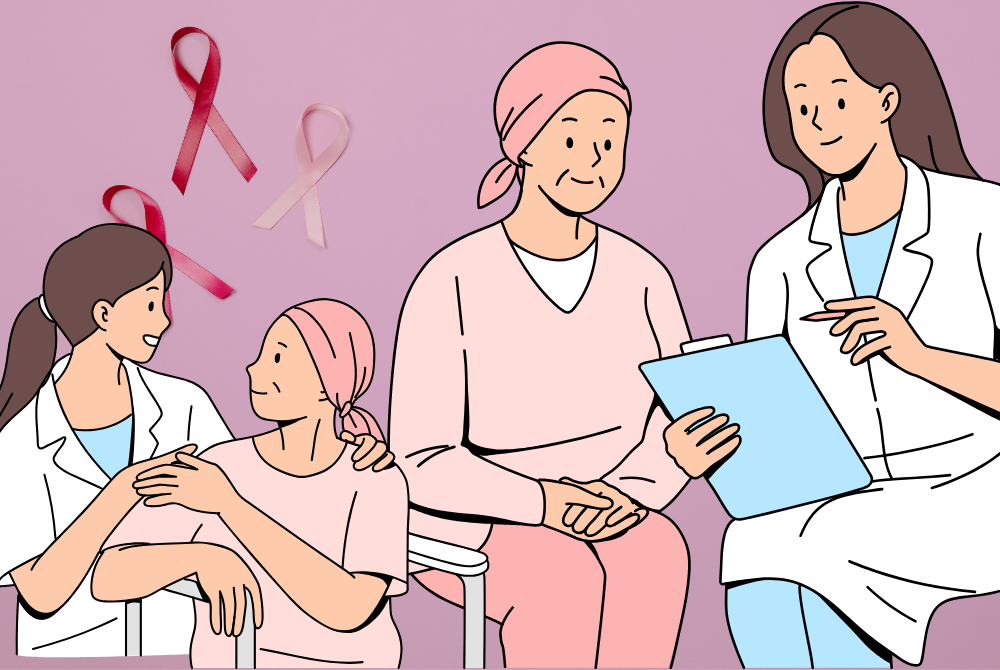
Women continue to lag behind in early breast cancer detection, largely due to fear and shame, as the disease involves sensitive areas of the body.
This stigma, coupled with the unease associated with screening processes, has caused numerous women to hesitate in seeking medical assistance. This critical matter needs immediate attention, according to Tun Dr Hasmah Mohamad Ali.
There are numerous factors why women shy away from undergoing screening. A significant reason is the mammography exam itself. Many women feel apprehensive due to its discomfort, particularly for those who have an abundance or scarcity of breast tissue, since the procedure necessitates compressing the breast similar to how 'apam balik' is prepared.
"Another factor is shame. Women feel embarrassed because breast cancer involves private parts, but this fear must be overcome. Early detection can save lives," she said while sharing her experience as a breast cancer survivor.
Tun Hasmah pointed out that numerous women opt for female doctors because of the sensitive nature of breast cancer screenings. Such preferences might cause postponements when female physicians are not accessible.
"Women tend to be quite selective and often opt for female physicians due to feelings of embarrassment about revealing personal details to male practitioners. However, should a male doctor be the sole choice available, I encourage women not to allow their hesitance to prevent them from seeking necessary care. Remember, he’s merely performing his duty as a professional. Don’t permit discomfort or worry to hinder your access to essential medical assistance," she emphasized.
She also recounted how she was diagnosed with breast cancer in 2019 during an official visit to Manila.
"My initial symptom was pain, which was extremely excruciating, prompting me to schedule an appointment right after getting back to Malaysia. At that point, my husband, Tun Dr Mahathir Mohamad, wasn't aware of it," she disclosed.
Dr Harjit Kaur, a consultant breast and endocrine surgeon at Prince Court Medical Centre, highlighted the frightening truth about breast cancer—it usually causes no pain during its initial phases. Due to this absence of noticeable signs, numerous women put off getting screened, ultimately consulting a doctor only after the situation has become critical.
"Breast cancer is often silent. By the time a lump becomes painful, it’s usually already advanced. That’s why early detection is key. Regular mammograms and ultrasounds can catch the disease in its early stages. Ultrasounds are painless, quick and simple, making them an excellent option for annual screening," she said.
Dr Harjit mentioned that breast cancer does not recognize age boundaries.
"Not only older women are impacted; younger women and even girls are now receiving diagnoses of breast cancer. Screenings are essential for all age groups," she emphasized.
Tun Hasmah admitted that her path was blessed due to the suffering she endured, which served as a catalyst prompting her to seek assistance at an earlier stage.
She was an advocate for improving mammography technology to enhance patient comfort during exams.
"The equipment needs enhancement to lessen discomfort. This improvement could motivate more women to participate in routine check-ups," she stated.
According to her, the stigma surrounding breast cancer must be eradicated and the conversation about early detection must be normalised.
"Tun Hasmah emphasized the necessity of educating women regarding the significance of routine examinations and screenings," she stated.
"Fear and embarrassment should not be part of the battle against breast cancer. People’s lives are at risk," she stated.
Dr Harjit reinforced this view, highlighting the significance of timely intervention.
She mentioned that you cannot evade breast cancer if fate decrees it, but detecting it at an initial stage can enhance your likelihood of surviving. The key lies solely in screening.
Komentar
Posting Komentar